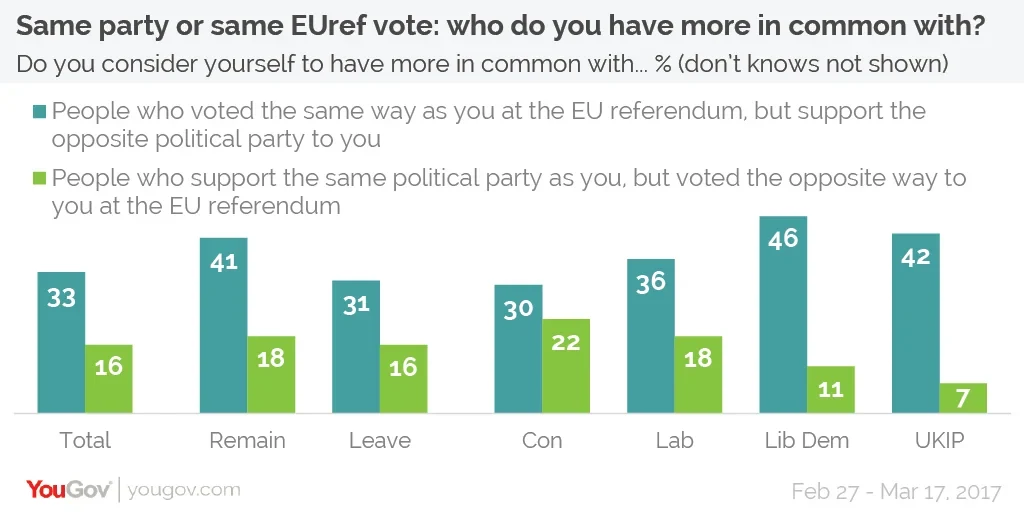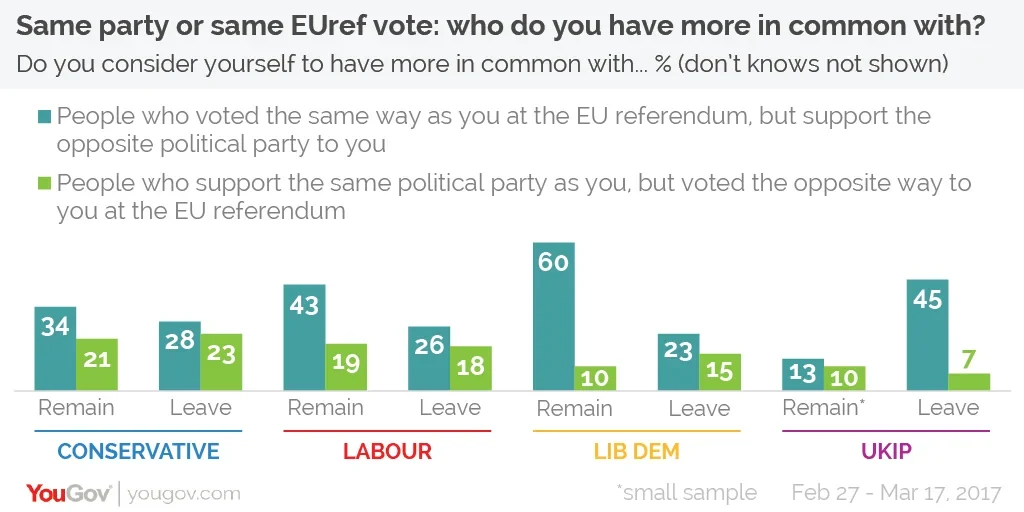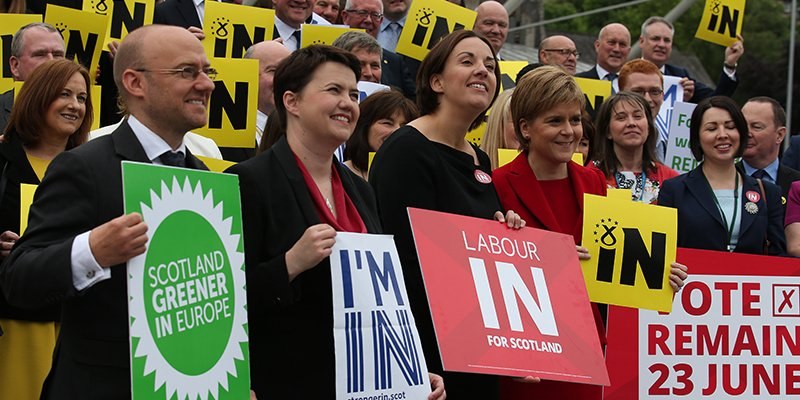Brits feel they have more in common with those who voted the same way at the EU referendum, even if they support an opposing political party
The 2017 general election is viewed by some as the ‘Brexit election’. The EU referendum may well turn out to be the defining vote of our era, with some predicting a realignment of British politics along the Leave/Remain dividing line.
For many people historically, party affiliation has been the only way to express their political identity and work out who else they share common values with. But in the wake of the EU referendum the electorate now has an alternative set of labels they can define themselves by.
YouGov decided to see which set of identities the public think best encapsulates them and people like themselves. Do people still feel that the party they support is what sets them apart from others, or is the Leave/Remain divide now how people want to group themselves?
The research, conducted before Theresa May announced the snap general election, asked more than 5,000 people whether they thought they had more in common with people who voted the same way at the EU referendum but supported a different political party, or people who support the same party but voted the opposite way at the EU referendum.
Because many people aren’t heavily political and don’t tend to consider their life in particularly political terms, questions about ideology tend to have high proportions of people saying they “don’t know”. This remains the case with this survey, with 52% responding “don’t know”.
This still leaves almost half of the population who feel strongly one way or the other about their political identity. Of these, Brits are twice as likely to feel they share more in common with those who voted the same way at the EU referendum but who support a different political party (33%) than the other way round (16%).

This order holds true across every political and social demographic and it is most true of voters for the most pro-EU and anti-EU parties. Fully 46% of 2015 voters Lib Dems and 42% of 2015 UKIP voters feel they have more in common with those who voted the same way at the referendum.
The only breakdown where it is even vaguely close is among those who voted Conservative in 2015 where 22% feel they have more in common with people who support the same political party than believe they share more with fellow referendum voters (30%).
While voters on both sides of the EU referendum divide are more likely to feel they have more in common with those who voted the same way over Brexit, it is particularly true of Remain voters. The figures sit at 31% vs 16% for Leavers (about the same as the national rate), the figure is much higher among Remainers, with 41% feeling a greater affinity with other Remain voters compared to just 18% who feel closer to those with the same party politics.
Combining 2015 election and EU referendum votes highlights this more starkly. Labour ad Lib Dem Remainers are particularly likely to feel they have more in common with people who voted the same way at the referendum but support other parties. Meanwhile, Conservative Remainers are less evenly split in their views than their Conservative Leaveers.

Whether this new social-political divide ends up reshaping the party political landscape remains to be seen. Ultimately, a political realignment may take longer than the eleven and a half months between the EU referendum and 2017 general election. Nevertheless, with the UKIP vote already showing signs of splintering and the Leave vote coalescing around the Conservatives, and the potential fracturing of the Labour party, the post-2017 landscape could be very fertile ground for a fundamental shift in British politics.
Photo: PA













